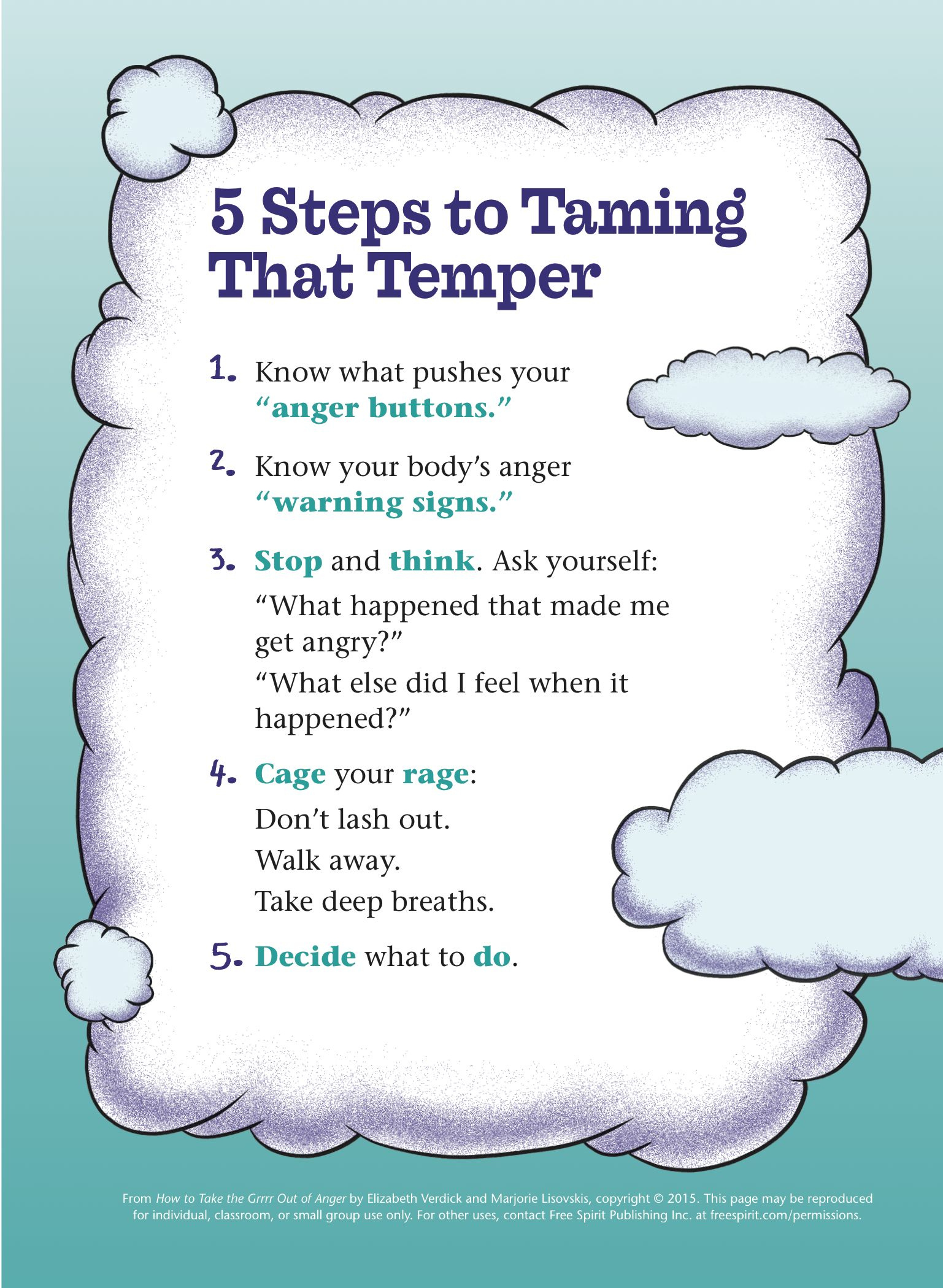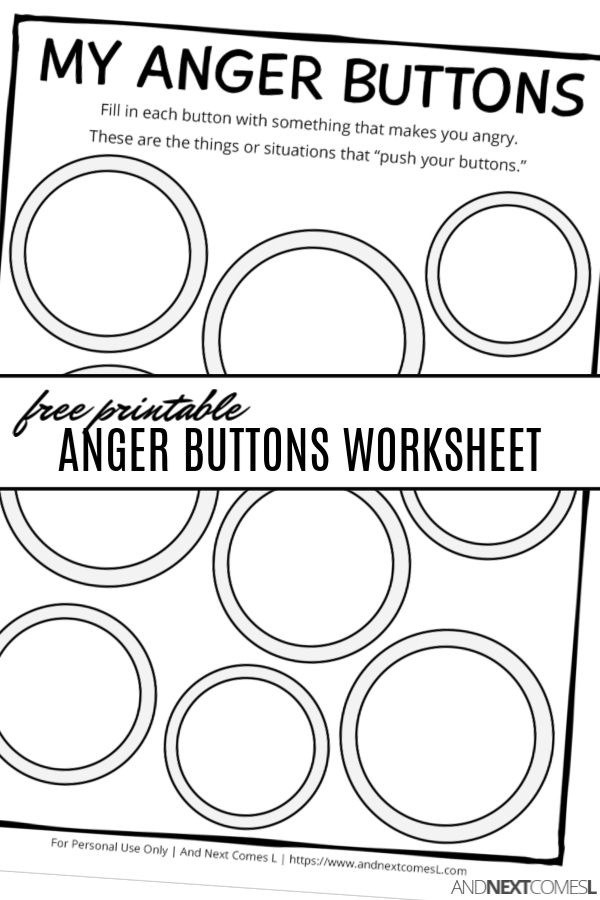7 Worksheets for Anger Management Counseling

Managing Anger through Effective Counseling
Anger is a natural human emotion that can be beneficial when expressed in a healthy and constructive manner. However, uncontrolled anger can lead to destructive behaviors, strained relationships, and a host of physical and mental health problems. Anger management counseling is a therapeutic approach designed to help individuals understand and manage their anger in a more effective and healthy way. In this article, we will explore seven worksheets that can be used in anger management counseling to help individuals better understand and manage their anger.
Understanding Anger
Before we dive into the worksheets, it’s essential to understand what anger is and how it affects individuals. Anger is a complex emotion that can arise from various sources, including frustration, hurt, or perceived injustice. When left unchecked, anger can lead to aggressive behavior, hurtful outbursts, and damaged relationships.
Common Causes of Anger:
- Frustration
- Hurt or perceived injustice
- Fear or anxiety
- Unmet expectations
- Physical or emotional pain
Worksheet 1: Anger Triggers
Identifying anger triggers is a crucial step in managing anger. This worksheet helps individuals recognize the situations, people, or events that trigger their anger.

| Trigger | How it makes me feel | How I react |
|---|---|---|
| Being stuck in traffic | Frustrated and annoyed | I yell at other drivers |
| Someone cutting me off | Angry and disrespected | I honk my horn |
| Being criticized | Hurt and defensive | I lash out at the person |
🔥 Note: This worksheet is not exhaustive, and individuals should continue to add to their list of triggers as they become more aware of their anger patterns.
Worksheet 2: Anger Intensity Scale
This worksheet helps individuals gauge the intensity of their anger and develop a better understanding of their emotional state.
- 1-3: Mildly annoyed
- 4-6: Moderately angry
- 7-9: Very angry
- 10: Extremely angry
Anger Intensity Scale Exercise:
- Rate your current level of anger on a scale of 1-10.
- Identify the trigger or situation that led to your current emotional state.
- Describe how you feel physically and emotionally.
Worksheet 3: Anger Coping Skills
This worksheet helps individuals identify healthy coping skills to manage their anger.
- Deep breathing exercises
- Physical activity (e.g., walking, running, or yoga)
- Mindfulness meditation
- Creative expression (e.g., drawing, painting, or writing)
- Talking to a trusted friend or family member
Anger Coping Skills Exercise:
- Rank your preferred coping skills in order of preference.
- Identify the situations in which each coping skill is most effective.
- Practice using each coping skill for a set period, and record your progress.
Worksheet 4: Self-Awareness Exercise
This worksheet helps individuals develop greater self-awareness and understand their thought patterns and emotional responses.
- What are my thoughts when I’m angry?
- How do I physically feel when I’m angry?
- What are my emotional triggers?
- How do I typically react when I’m angry?
Self-Awareness Exercise:
- Reflect on a recent situation that triggered your anger.
- Identify your thoughts, physical sensations, and emotional responses.
- Record your insights and reflect on how you can apply this self-awareness to future situations.
Worksheet 5: Assertiveness Skills
This worksheet helps individuals develop assertiveness skills to express their needs and feelings effectively.
- Using “I” statements
- Setting clear boundaries
- Practicing active listening
- Expressing feelings and needs clearly
Assertiveness Skills Exercise:
- Role-play different scenarios where you need to express your needs or feelings.
- Practice using “I” statements and setting clear boundaries.
- Record your progress and reflect on areas for improvement.
Worksheet 6: Forgiveness and Letting Go
This worksheet helps individuals work through the process of forgiveness and letting go of grudges.
- Identify the person or situation that triggered your anger.
- Reflect on the emotions and thoughts associated with the situation.
- Practice forgiveness and letting go of negative emotions.
Forgiveness and Letting Go Exercise:
- Write a letter (not to be sent) to the person or situation that triggered your anger.
- Express your feelings and thoughts.
- End the letter with a statement of forgiveness and letting go.
Worksheet 7: Anger Management Plan
This worksheet helps individuals develop a comprehensive anger management plan.
- Identify triggers and coping skills.
- Develop a plan for managing anger in different situations.
- Set realistic goals and track progress.
Anger Management Plan Exercise:
- Review your worksheets and identify common themes and patterns.
- Develop a plan for managing anger in different situations.
- Set realistic goals and track your progress.
Reflection and Progress
Managing anger is a process that takes time, effort, and dedication. It’s essential to reflect on progress, celebrate successes, and identify areas for improvement.
- Regularly review your worksheets and reflect on your progress.
- Celebrate successes and accomplishments.
- Identify areas for improvement and adjust your plan accordingly.
📝 Note: These worksheets are meant to be a starting point for anger management counseling. It's essential to work with a trained therapist or counselor to develop a comprehensive treatment plan.
What is anger management counseling?
+Anger management counseling is a therapeutic approach designed to help individuals understand and manage their anger in a more effective and healthy way.
What are some common causes of anger?
+Common causes of anger include frustration, hurt or perceived injustice, fear or anxiety, unmet expectations, and physical or emotional pain.
How can I manage my anger?
+Effective anger management involves identifying triggers, developing healthy coping skills, practicing self-awareness, and learning assertiveness skills.
What is the importance of forgiveness in anger management?
+Forgiveness is an essential aspect of anger management, as it allows individuals to let go of negative emotions and move forward.
How can I develop a comprehensive anger management plan?
+Developing a comprehensive anger management plan involves identifying triggers, developing healthy coping skills, setting realistic goals, and tracking progress.



